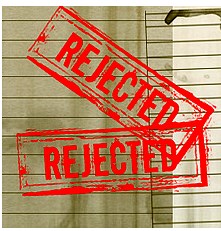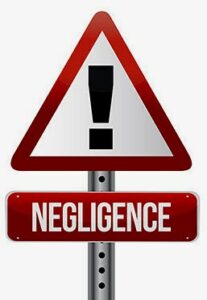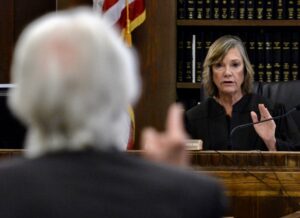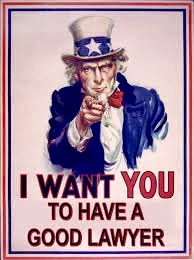
Sawdon Estate v Watch Tower Bible & Tract Society of Canada 2012 ONSC 4042 involves a case where there was a dispute as to whether seven joint bank accounts with two of the deceased five adult children, went to the five children equally as per their evidence, or alternatively the million-dollar estate went to his estate, 75% of which was left to the defendant church.
The court examines the usual criteria in such resulting trust versus gift cases, as per the guidelines of the leading case of Pecore v Pecore 2007 SCC 17.
What was more remarkable about the reasons for judgment in the opinion of disinherited.com were the three pages of scathing comments made about the drafting lawyer of the will, whose evidence the court found to be neither credible, nor reliable, and biased.
Amongst other things the lawyer did not disclose a conflict ridden a potential conflict to the deceased that he was an elder with the Jehovah Witness Church and his subsequent evidence and behavior.
[51] With respect to the evidence of Mr. Pole, I reject it entirely. There are a number of reasons I have concluded his evidence is neither credible nor reliable:
Mr. Pole is a lawyer. I find it surprising and questionable that Mr. Pole would not disclose a conflict or even a potential conflict that he was an “elder” or “lay minister” with the Jehovah’s Witness church and had acted for the Jehovah’s Witness church prior to the preparation of the 2004 Will or the July 2006 Will or the Transfer and Assignment. Mr. Pole’s reason for not doing so – because he wasn’t wearing his Jehovah’s Witness “hat” at the time – is simply not a good answer. Arthur Sawdon and the other shareholders of Sawdon Holdings were entitled to know all of Mr. Pole’s “hats” when Mr. Pole provided advice or prepared documents for Arthur Sawdon;
Mr. Pole’s answers in cross-examination by the Estate Trustee’s counsel were combative and he took every opportunity, whether or not relevant or appropriate to the question asked, to give answers favourable to Watch Tower; some of Mr. Pole’s answers made little sense. For example, Mr. Pole’s evidence as to knowing Arthur Sawdon’s intention regarding the Joint Bank Accounts after his death make no sense when Mr. Pole didn’t know the joint nature of the bank accounts until after Arthur Sawdon’s death. Daniel Pole’s evidence was inconsistent with his earlier evidence that he had told Arthur Sawdon, if he set up joint accounts without a Declaration of Trust, the monies would go to the joint account holders on his death. Even more inconsistent was that two weeks after Arthur Sawdon signed the July 2006 Will, Arthur Sawdon opened up two new joint accounts with his sons with a right
of survivorship. Notwithstanding, Mr. Pole was adamant that it was Arthur Sawdon’s intention that the monies in the Joint Bank Accounts were to go to the estate;
Mr. Pole’s actions subsequent to the death of Arthur Sawdon are demonstrative of a appearance of bias in favour of the Watch Tower:
i. Mr. Pole advised Arthur Sawdon that the Transfer and Assignment had not been accepted by the Trust Administrator and that the Watch Tower would receive the shares as the residual beneficiary under the July 2006 Will. The Transfer and Assignment apparently was a moot issue. However, upon Arthur Sawdon’s death, Mr. Pole’s actions in his attempts and threatens to get an immediate transfer of the shares of Sawdon Holdings to the Watch Tower, not as a residual beneficiary but as an inter vivos gift, gives the appearance of bias in favour of the Watch Tower. Mr. Pole’s explanation that he did this to avoid estate fees was not a credible explanation;
ii. Despite instructions by Wayne Sawdon, the executor under Arthur Sawdon’s July 2006 Will, not to advise the Watch Tower about the Watch Tower’s potential entitlement under the Will, Mr. Pole nevertheless communicated the information to the Watch Tower; and
iii. Mr. Pole’s attempts to get the Trust Administrator to immediately effect the Transfer and Assignment from Arthur Sawdon to Watch Tower, without authorization from potentially interested parties, are also evidence of apparent bias in favour of the Watch Tower. I reject Mr. Pole’s explanations as to his authority to pursue the transfer to the Watch Tower as his explanations are wrong in law and appear to be an effort to justify taking his actions
Authority under the Charities Accounting Act. R.S.O. 1990, c.C.10, as amended – There was no legal obligation on Mr. Pole, under the Charities Accounting Act, to advise the Trust Administrator as no property intended for a charity vested in him;
Authority under the Power of Attorney
The Power of Attorney, given by Arthur Sawdon, even if relevant, had expired upon the death of Arthur Sawdon; and
As solicitor for or director of Sawdon Holdings -Mr. Pole had not received any instructions from Sawdon Holdings or its board of directors or its officers to demand the transfer to the Watch Tower. There is no reason that Mr. Pole would have written the letter without the prior knowledge of Wayne Sawdon, the only other director of Sawdon Holdings, a beneficial shareholder of Sawdon Holdings and an officer of Sawdon Holdings. Further, there no reason that Mr. Pole would have made the demands without the prior knowledge and approval of Wayne Sawdon, the executor under the July 2006 Will, a beneficiary under the July 2006 Will and someone who might object to the transfer of the shares to the Watch Tower




